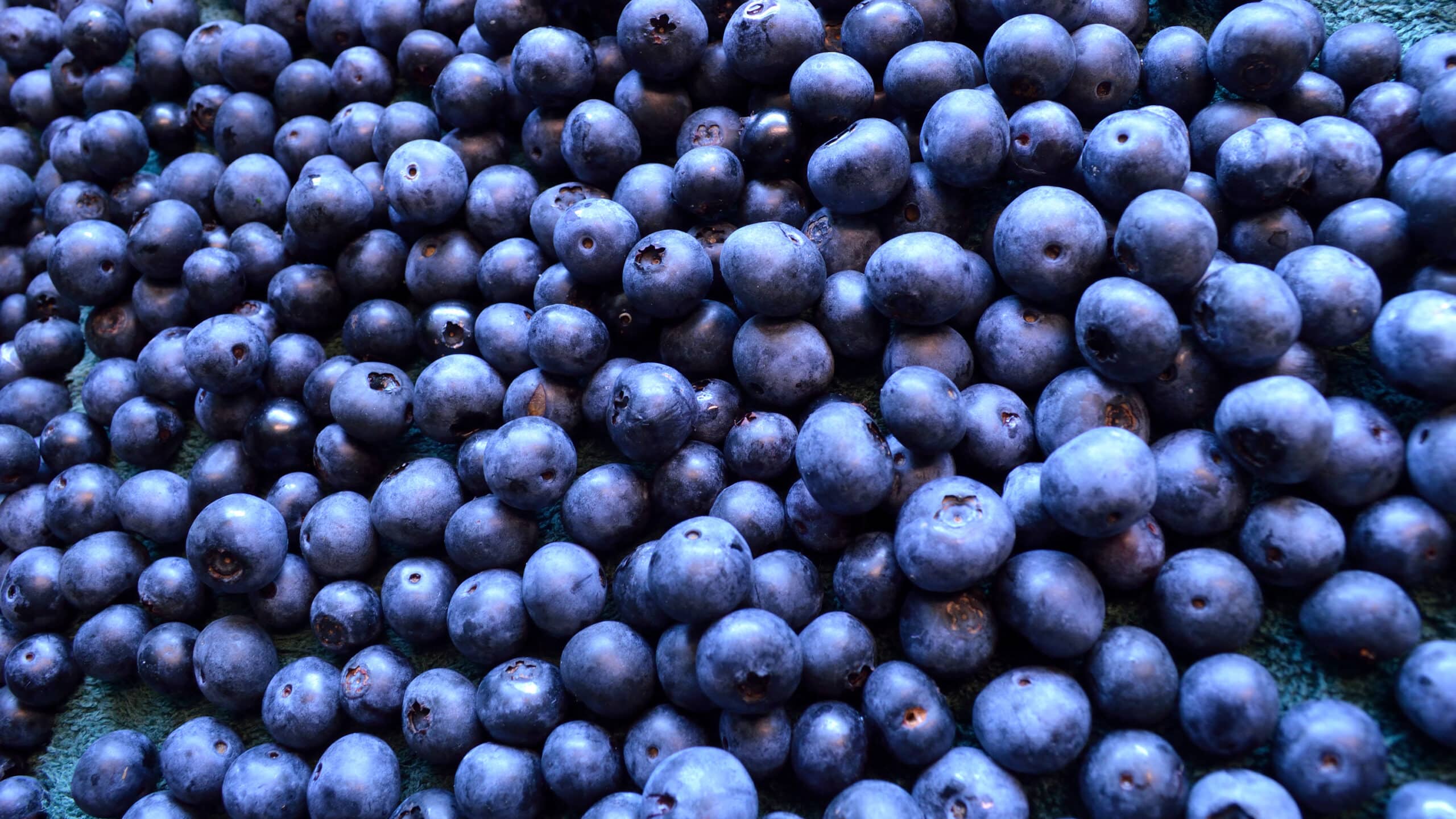Are you aware that blueberries are low in calories, sodium, and carbohydrates, while being high in water content, and fiber? They are nutrient-dense and are abundant with antioxidants, especially anthocyanin which is responsible for the deep blue color and powerful health benefits. Blueberries are also a rich source of vitamins C, K, B6, folate, copper, manganese, and potassium.
Studies suggest that blueberries may help with your anti-aging routine. When combined with a healthy lifestyle, these little berries are rich sources of polyphenols and resveratrol that are long thought to help extend longevity and combat the adverse effects that are associated with aging.
Blueberries’ high fiber content promotes digestion and boosts weight loss. Studies have shown blueberries to promote satiety and reduce belly fat. One cup of blueberries contains 15 grams of carbohydrates and 84 calories which makes them an enticing snack for people trying to lose or manage weight loss.
They are a great source of antioxidants that are responsible for free radical scavenging in the body, specifically anthocyanin flavonoids prevent damage due to free radicals within the body, which includes early aging, cellular structural damage, and various types of cancer.
High levels of calcium, iron, phosphorus, zinc, vitamin K, manganese, and magnesium help with bone strengthening by increasing bone density and contributing to maintaining bone structure.
The powerful antioxidant anthocyanin within blueberries is responsible for preventing oxidative DNA damage, and the vitamin C abundance is also a big helper in this matter, which is why blueberries help to prevent the signs of aging such as hair loss, age spots, wrinkles, cataracts, and other skin issues.
High fiber content and antioxidants give blueberries the ability to dissolve LDL cholesterol and they are a great dietary supplement to help fight certain heart diseases while strengthening cardiac muscles, and lower blood pressure.
Blueberry extracts and juice help to improve insulin sensitivity and their fiber content which is essential for a diabetic diet will also help to lower blood sugar levels.
Pterostilbene and ellagic acid contained in blueberries in harmony with anthocyanin, copper, vitamin C, and other antioxidants can be extremely valuable for cancer patients.
Promoting brain health: Anthocyanin, selenium, vitamin A, C, E, and B complex, as well as sodium, zinc, copper, potassium, manganese, magnesium, phosphorus, and other phytonutrients, may help to heal nervous disorders by helping to prevent degeneration and death of neurons, protecting brain cells and helping to restore central nervous system health, while assisting with the healing of damaged brain cells and neuron tissues to keep memory sharp. Blueberries are rich in flavonoids also that help to enhance moods, working as kind of a natural antidepressant for some people.
Fiber roughage provided by blueberries helps to prevent constipation. Their fiber content along with sodium, copper, and vitamins, assists with digestion which is improved by stimulating correct gastric and digestive juices to move food smoothly through the gastrointestinal system. Additionally, bacterial colonies such as E. coli which can cause urinary tract infections are inhibited by antibiotic properties in blueberries, just as with cranberries.
Age-related ocular problems may be delayed or prevented by antioxidant properties contained in blueberries such as carotenoids and flavonoids which are beneficial and essential for ocular health.
The immune system could also get a nice boost from the beneficial compounds within blueberries to help prevent infections and other communicable diseases spread by viruses and bacteria.
Blueberries may also help to prevent oxidative stress and chronic inflammation with their powerful anti-aging antioxidants, making them well worth eating every day. Blueberries are fairly flexible in use making them easy to incorporate into your diet via smoothies, salads, trail mix, or grabbing a handful as a snack.
Final notes on this yummy little berry that’s just packed full of beneficial goodness; the darker the color of the berry the richer it is in antioxidants and medicinal nutrients. So basically, provided you do not have an intolerance, eat these little gems until your tongue turns blue, they will not only be tasty, but they may help you to live a longer and healthier life.
However, it must be noted that individuals taking warfarin medications should not consume blueberries as the vitamin K content may interfere with blood thinning and may cause blood clots.




